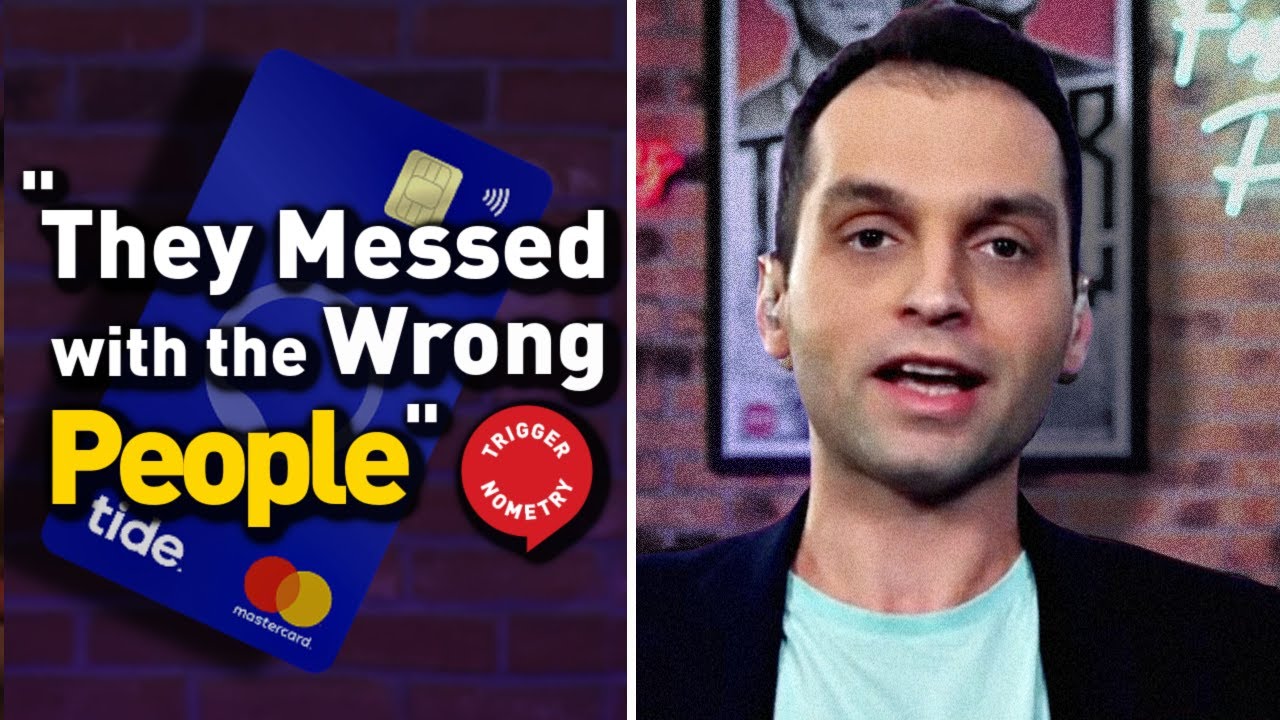Konstantin Kisin goes on Mark Dolan Tonight, GB News 19/05/2023, to discuss TRIGGERnometry’s Account with Tide being shut down by the bank. Join our exclusive TRIGGERnometry community on Locals! https://triggernometry.locals.com/ OR Support TRIGGERnometry Here: Bitcoin: bc1qm6vvhduc6s3rvy8u76sllmrfpynfv94qw8p8d5
Understanding Deplatforming: Assessing Its Impact and Concerns
In recent years, the term “deplatforming” has gained prominence as a strategy employed by online platforms to restrict or remove certain individuals or groups from their services. It has become a topic of debate, with proponents arguing for its efficacy in curbing harmful behavior, while critics express concerns about its potential negative implications for free speech and public discourse. This article aims to provide an overview of deplatforming, its objectives, and the arguments against it.
What is Deplatforming?
Deplatforming refers to the practice of denying individuals or organizations access to online platforms, thereby removing their ability to reach and engage with a large audience. This can involve suspending or permanently banning user accounts, removing content, or demonetizing channels. Platforms may choose to deplatform users for various reasons, such as violations of community guidelines, harassment, hate speech, disinformation, or promoting violence.
Objectives of Deplatforming:
Advocates of deplatforming assert that it serves several important objectives:
Combating Harmful Behavior: Deplatforming is often seen as a tool to address harmful behavior, such as online harassment, hate speech, or the spread of disinformation. By removing offenders from platforms, it aims to reduce the negative impact on targeted individuals and limit the reach of harmful content.
Protecting Users: Platforms have a responsibility to create safe environments for their users. Deplatforming can be viewed as a means to protect vulnerable individuals from harassment, abuse, and exposure to harmful ideologies.
Upholding Community Standards: Online platforms typically have guidelines and policies outlining acceptable behavior. Deplatforming is seen as a mechanism to enforce these standards and maintain a certain level of quality and integrity within the platform’s community.
Concerns Regarding Deplatforming:
Critics of deplatforming raise several concerns, highlighting potential negative consequences associated with this practice:
Free Speech Considerations: Deplatforming raises concerns about limiting freedom of expression, as individuals or groups may be silenced or marginalized based on their opinions or controversial views. Critics argue that platforms, acting as intermediaries, should be cautious about becoming arbiters of acceptable speech.
Lack of Transparency and Accountability: The decision-making process behind deplatforming is often criticized for its lack of transparency and accountability. Critics argue that platforms should clearly define their policies and provide clear justifications when deplatforming occurs, in order to avoid potential bias or the suppression of dissenting opinions.
Potential Backlash and Strengthening of Extremist Narratives: Some critics suggest that deplatforming can lead to unintended consequences. By removing individuals or groups from mainstream platforms, they may be driven to more fringe platforms, where their ideologies can become more extreme and radicalized, making them harder to monitor and counter.
Slippery Slope Concerns: Critics caution that deplatforming, if not exercised judiciously, may set a dangerous precedent for censorship. They argue that the line between justified removal and unwarranted silencing can become blurred, potentially leading to an environment of over-policing and stifling of diverse perspectives.
Deplatforming remains a complex and contentious issue, with both proponents and critics presenting valid arguments. Striking a balance between addressing harmful behavior and protecting free speech is a challenge for online platforms. As the debate continues, it is crucial for platforms to adopt transparent policies, engage in public dialogue, and consider alternative approaches to moderation that can effectively address concerns surrounding deplatforming while upholding democratic principles.

![Wells Fargo Closes Lauren Witzke’s Bank Account For Political Views f467a13b-76d0-4706-a855-7cf25d8ee162-large[1]](https://centermatter.com/wp/wp-content/uploads/2021/06/f467a13b-76d0-4706-a855-7cf25d8ee162-large1.jpg)

![China's ENTIRE Economy Will Collapse In 34 Days maxresdefault[1]](https://centermatter.com/wp/wp-content/uploads/2022/08/maxresdefault1-1.jpg)
![BREAKING: Gab’s Torba Looking Into ‘Buying Our Own Bank’ After 4th Bank Ban In 4 Weeks Gab-Torba-Banks-1024×529[1]](https://centermatter.com/wp/wp-content/uploads/2021/03/Gab-Torba-Banks-1024x5291-1.png)
![Free speech friendly Discord alternatives discord-alternatives-768×432[1]](https://centermatter.com/wp/wp-content/uploads/2021/05/discord-alternatives-768x4321-1.png)

Leave a Reply